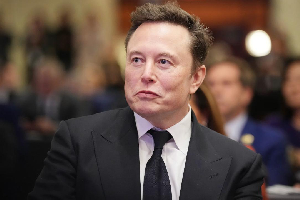Accra, Jan. 4, GNA - The Government's commitment to fight corruption has been established, President John Agyekum Kufuor said in Accra on Tuesday.
President Kufuor, who was delivering the State of the Nation Address to Parliament on Tuesday, said the commitment had been in place throughout the past four years and had remained.
President Kufuor said the heaviest corruption occurred through procurement and the falsification of financial documents in the Public Sector, therefore, to effectively tackle corruption, the society must be equipped not only at the personal level but also at the institutional level.
"This is why, the Government had championed the passage of the Public Procurement Act, the Internal Audit Agency Act and has also set up the Financial Administration and the Internal Revenue Agencies Boards" to tackle the problem in the Public Sector, he said.
President Kufuor said these institutional weapons combined would make the assault on corruption formidable and within Government itself, the Office of Accountability was maturing and would continue to be an effective in-house self-correcting machinery among Government officials.
On the African Peer Review Mechanism (APRM), President Kufuor said it was evident that much of the instability in the West African Sub-Region had been attributed to the failure in systems of governance to cater for the rights of minorities and other groups within society. He said Ghana had been on the frontline to support the APRM, which was being advocated among member states of the African Union (AU) as a way of solving the problem and had opted to be the first country to subject itself to the Review Mechanism.
President Kufuor explained that the Mechanism was designed to help participating countries assess the performance of their governance institutions and work toward well-established benchmarks of good governance.
Some of these bench marks he said were democratic elections, the devolution of power through decentralisation, the rule of law and the general respect for human rights especially of religions, minority groups and the media.
"The ultimate aim is to generate a feeling of shared ownership among all stakeholders in the nation's governance and indeed its destiny", he said. 04 Jan. 05
General News of Tuesday, 4 January 2005
Source: GNA
Govt's commitment to fight corruption has been established - JAK
Opinions











